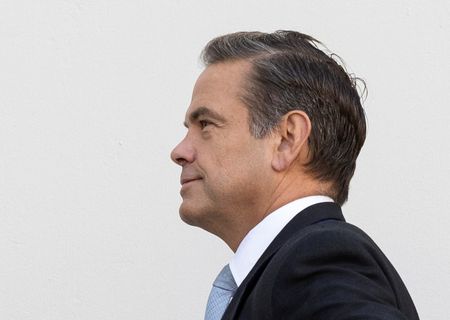By Shadia Nasralla
LONDON (Reuters) -Oil prices were little changed on Monday as concerns over Russia and the Middle East were countered by oversupply jitters.
Brent crude oil futures, which have traded between around $65.50 and $69 a barrel since early August, dipped 12 cents, or 0.2%, to $66.56 a barrel by 1000 GMT while the U.S. West Texas Intermediate crude contract for October was at $62.65 a barrel, down 3 cents, or 0.1%.
The October WTI contract expires on Monday and the more active November contract fell 18 cents, or 0.3%, to $62.22 a barrel.
Polish and allied aircraft were deployed early on Saturday to ensure the safety of Polish airspace after Russia launched airstrikes targeting western Ukraine near the border with Poland, armed forces of the NATO-member country said.
The deployment came after three Russian military jets violated NATO Estonia’s airspace for 12 minutes on Friday.
In the Middle East, four Western nations recognised a Palestinian state, prompting a furious response from Israel and adding to jitters in the key oil-producing region.
Brent and WTI settled down more than 1% on Friday to mark a slight decline last week as worries about large supplies and declining demand weighed on sentiment.
“The setup for the oil market is that global oil demand is set to taper off from Q3 to Q4 and again to Q1-26. At the same time production by OPEC+ is on a rising path,” said SEB analysts.
“The big question is of course if China will stockpile the increasing surplus or whether the oil price will be pushed lower into the 50ies. We believe the latter.”
Iraq, OPEC’s second-largest producer, has increased oil exports under an OPEC+ agreement, state oil marketer SOMO said on Sunday.
SOMO expects September’s average exports to range from 3.4 million to 3.45 million bpd.
Iraq has also given preliminary approval to a plan to resume pipeline oil exports from its semi-autonomous Kurdistan region through Turkey following delays to a hoped-for restart, sources familiar with the talks told Reuters.
(Additional reporting by Florence Tan and Mohi Narayan; Editing by Bernadette Baum)











